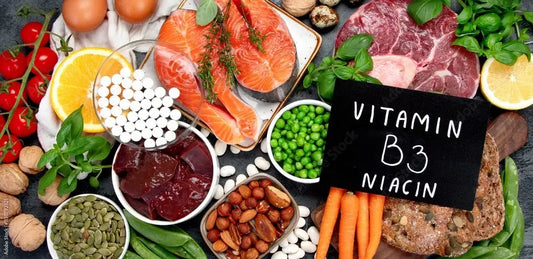Nicotinamide adenine dinucleotide (NAD) is a vital coenzyme found in every living cell, playing a crucial role in energy metabolism and cellular function. In recent years, interest in NAD has surged, particularly due to its implications in aging and health. But where does NAD come from? This article will explore the origins of NAD, its biosynthesis pathways, and its significance in biological processes.
Where does NAD come from?
NAD is synthesized within the body from two primary precursors: tryptophan and niacin (vitamin B3). Tryptophan, an essential amino acid, can be converted into niacin through a series of enzymatic reactions. Niacin itself can also be directly ingested from dietary sources, such as meat, fish, poultry, and whole grains, and then converted to NAD through various pathways. Therefore, NAD derives from both endogenous synthesis and dietary intake.
The Biosynthesis of NAD
The biosynthesis of NAD involves several key pathways, primarily the de novo synthesis pathway and the salvage pathway. The de novo pathway starts with the amino acid tryptophan, which undergoes conversion into niacin and subsequently into NAD. This process is relatively complex and requires several enzymes, including tryptophan 2,3-dioxygenase and kynurenine 3-monooxygenase.
On the other hand, the salvage pathway utilizes already existing nicotinamide, a form of niacin, to regenerate NAD. This is a more direct and efficient route for maintaining NAD levels in the body, particularly under conditions where NAD is rapidly consumed, such as during intense physical activity or metabolic stress.
Dietary Sources of Niacin
Since niacin is a critical precursor to NAD, understanding dietary sources of niacin is essential. Foods rich in niacin include:
- Meat: Chicken, turkey, and beef are excellent sources of niacin.
- Fish: Tuna and salmon provide high levels of niacin.
- Whole grains: Brown rice, barley, and whole wheat products are good sources.
- Legumes: Peas, beans, and lentils are also beneficial.
- Nuts and seeds: Peanuts and sunflower seeds can contribute to niacin intake.
The Importance of NAD in Cellular Functions
NAD plays several crucial roles in cellular functions, including:
- Energy Metabolism: NAD is essential for converting food into energy through its role in glycolysis, the citric acid cycle, and oxidative phosphorylation.
- DNA Repair: NAD is a substrate for enzymes involved in DNA repair, helping maintain genomic stability.
- Cell Signaling: NAD contributes to cellular signaling pathways, influencing processes such as inflammation and cell death.
- Regulation of Aging: NAD levels decline with age, and maintaining adequate levels is believed to support healthy aging and longevity.
NAD and Health Implications
Research has indicated a strong correlation between NAD levels and various health conditions. Low NAD levels have been associated with metabolic disorders, neurodegenerative diseases, and age-related decline. As a result, boosting NAD levels through lifestyle changes, dietary adjustments, or supplementation has become a popular area of study.
Supplementation and Lifestyle Changes
To enhance NAD levels, individuals can consider the following strategies:
- Dietary Adjustments: Increasing the intake of niacin-rich foods can support NAD production.
- Exercise: Regular physical activity has been shown to increase NAD levels naturally.
- Supplements: NAD precursors like nicotinamide riboside (NR) and nicotinamide mononucleotide (NMN) are available as dietary supplements and have been studied for their potential benefits in boosting NAD levels.
Conclusion
In summary, NAD is a critical coenzyme that originates from both endogenous synthesis from tryptophan and niacin as well as dietary sources. Its essential roles in energy metabolism, DNA repair, and cellular signaling underscore its importance in maintaining health and longevity. Understanding where NAD comes from and how to support its levels can lead to better health outcomes and potentially mitigate age-related decline.
Stay Sharp, Stay Energized, Stay Ahead
Aging doesn’t have to slow you down. NMN + Resveratrol is your key to sustained energy, sharper focus, and long-term vitality. Whether you're a high performer pushing boundaries, a biohacker optimizing every aspect of life, or a parent looking to keep up with the demands of daily life, this powerful combination fuels your body at the cellular level.
Backed by science and trusted by those who refuse to settle for average aging, NMN + Resveratrol helps you stay ahead—today, tomorrow, and for years to come.
Experience the benefits for yourself. Start your journey to better aging now!
Try NMN + Resveratrol Today!
NMN + Resveratrol
Cellular NAD+ booster with ultra‑pure NMN and Resveratrol, at research‑backed doses.*
Read more:


